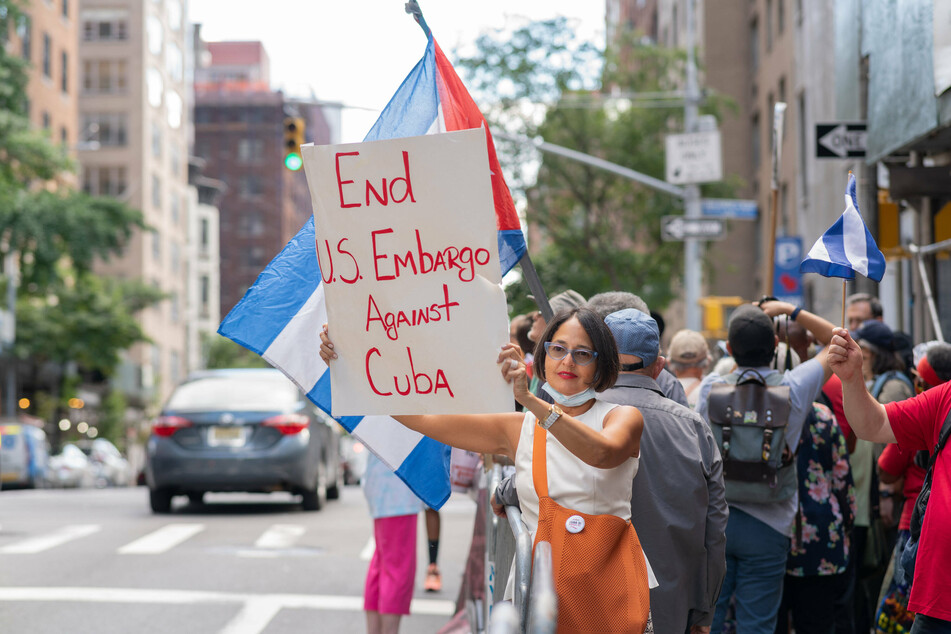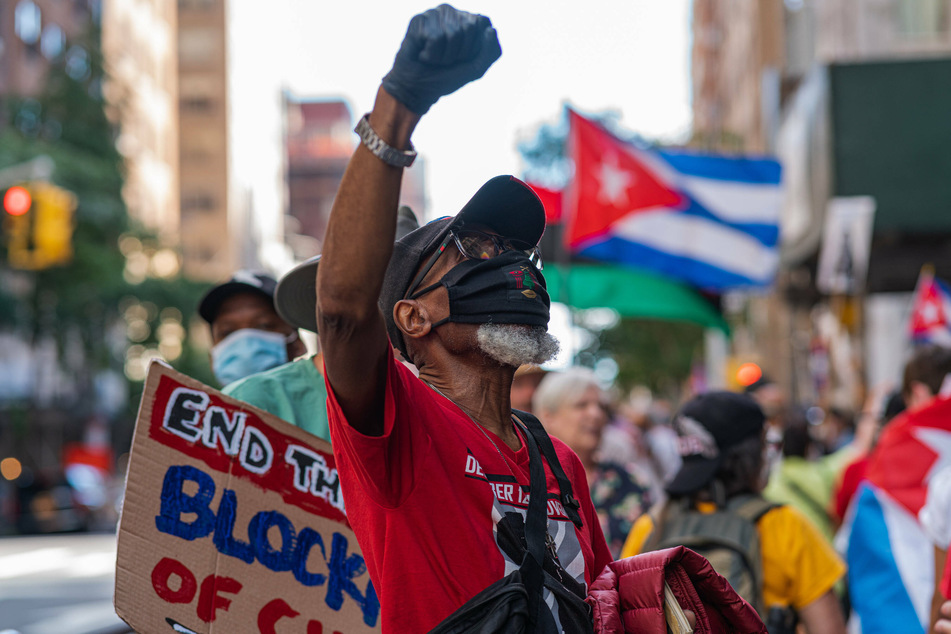UN votes for 29th time calling for US to end Cuba embargo
New York, New York – As it has every year since 1992, the United Nations General Assembly voted overwhelmingly in support of a resolution that calls for the US to lift its embargo against Cuba – and this time the pleading focused on the devastating impact of the economic blockade during the Covid-19 pandemic.

The vote on Wednesday was 184 in favor; three abstentions by Colombia, Ukraine, and the United Arab Emirates; and two "no" votes by the US and Israel. Member states once again said the blockade goes against international law and the US Charter. Cuba called the embargo "a systematic violation of the rights of the Cuban people."
"The US government adopted the virus as an ally in its ruthless non-traditional war against Cuba," Cuban Foreign Minister Bruno Rodriguez told the General Assembly. "This constitutes an act of genocide ... Just like the virus, the blockade asphyxiates and kills, and it must stop."
In opposing the resolution and maintaining the Trump administration’s position, the US defended the use of sanctions as part of a broader effort to advance democracy on the island, support human rights, and help Cubans exercise their civil liberties.
"We recognize the challenges the Cuban people face. That is why the United States is a significant supplier of humanitarian goods to the Cuban people and one of Cuba’s principal trading partners," US diplomat and UN mission political coordinator Rodney Hunter told the General Assembly.
Ever since the Cuba-backed resolution was first introduced, UN member states have approved it by an overwhelming margin. The most "no" votes it has ever garnered were four, including those of the United States and Israel, which has always voted in lockstep with the US.
The only time the US didn’t cast a "no" vote was in 2016 during the Obama administration’s opening toward Cuba, when both the US and Israel abstained.
Cuba faced difficulties acquiring medical supplies during the Covid-19 pandemic

The General Assembly's last vote during its 74th session in November 2019 was 187-3 with the US, Israel, and Brazil voting "no" and Colombia and Ukraine abstaining. The assembly’s 75th session began in September 2020, but because of the Covid-19 pandemic, the vote on the Cuba resolution was postponed.
During their remarks, several delegations pleaded for compassion and solidarity during the Covid-19 pandemic, which has created unprecedented hardship for Cubans. Many expressed the hope that the US and Cuba could work together to repair a rapprochement that began under the Obama administration, but that was dismantled under former president Donald Trump.
Rodriguez and several UN members said the embargo has cost the Cuban economy around $147.8 billion in losses over nearly six decades, and about $9 billion calculated from April 2019.
The embargo is hurting Cuba’s ability to access medical supplies and imposing significant difficulty in obtaining equipment to fight the Covid-19 pandemic, Rodriguez said, citing hurdles the island faced when trying to buy respirators last year.
Cuba was already struggling with a severe economic downturn when the coronavirus pandemic hit last year, forcing the island to close its borders to tourism, a key source of revenue.
The socialist regime was able to keep transmission numbers low for much of 2020 due to strict lockdown measures and close monitoring of its population through its universal public health network. Cuba reported just over 12,000 Covid-19 cases in all of 2020.
But when the island opened its borders late last year, Covid-19 numbers exploded, reaching a record 2,055 on Tuesday. Since the start of the pandemic, Cuba registered about 171,000 cases and 1,193 deaths.
Cover photo: IMAGO / Pacific Press Agency

